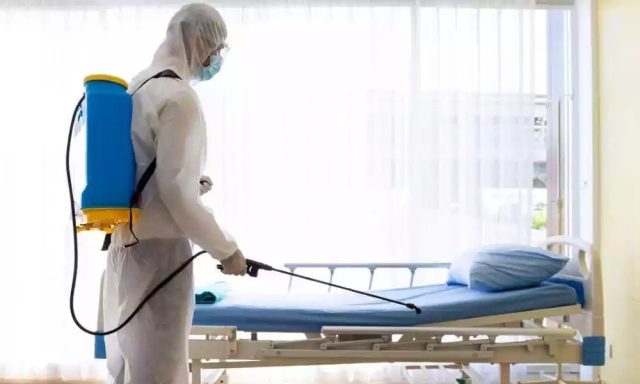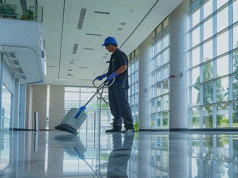When it comes to running a business, reputation and cleanliness go hand in hand. Imagine a customer walking into a restaurant and spotting a cockroach on the wall or an employee finding mice droppings in a warehouse—such moments can damage a company’s image instantly. Commercial pest control isn’t just about getting rid of insects or rodents; it’s about protecting your brand, your people, and your profits. Let’s discuss why specialized exterminator services are essential for businesses and how they can safeguard your operations year-round.
Why Pest Control Is Crucial for Businesses
Pests can cause more than just discomfort—they can destroy property, contaminate products, and spread diseases. For businesses, even a small infestation can lead to serious financial and legal consequences.
Let’s think about it: would you eat in a café known for having pests? Or buy from a store that smells musty and shows signs of rodents? Most likely not. That’s why commercial pest control is an investment every business should prioritize.
The Hidden Risks of Ignoring Pest Control
- Health Violations and Fines – Many industries, especially food and healthcare, face strict hygiene regulations. A single pest sighting can result in costly penalties or shutdowns.
- Reputation Damage – In today’s digital age, one negative review about pests can spread fast online.
- Property Damage – Termites, rats, and other pests can damage wiring, insulation, and wooden structures, leading to expensive repairs.
- Employee Morale and Safety – A clean, pest-free environment ensures happier, more productive employees.
Understanding Commercial Pest Control
Commercial pest control goes far beyond what homeowners typically need. Businesses operate in larger spaces, attract more foot traffic, and store goods in bulk—all of which make pest control more challenging.
Specialized exterminator services take a strategic and preventive approach, focusing on inspection, monitoring, and long-term management rather than short-term fixes.
How It Differs from Residential Pest Control
- Customized Treatment Plans: Each business type—restaurant, warehouse, office, or hospital—has different pest control needs.
- Continuous Monitoring: Commercial exterminators use traps, sensors, and data logs to track pest activity over time.
- Discreet Services: Professionals often work after business hours to minimize disruption.
- Compliance Documentation: Businesses receive reports for audits and health inspections.
Let’s discuss this further: residential pest control might aim to stop occasional bugs, but in a commercial setting, one missed treatment could mean a major outbreak. That’s why specialized expertise is essential.
Common Pests Found in Commercial Spaces
Different industries attract different types of pests, depending on environmental factors, stored materials, and cleaning habits.
1. Rodents (Mice and Rats)
Rodents are notorious for gnawing through wires, contaminating food, and spreading diseases like salmonella. They thrive in warehouses, food processing plants, and storage areas.
2. Cockroaches
These resilient pests can survive almost anywhere and multiply rapidly. They’re common in restaurants, hotels, and hospitals where moisture and food scraps are present.
3. Flies
From fruit flies in kitchens to drain flies in restrooms, they not only annoy customers but also carry harmful bacteria.
4. Ants
Ants enter through small cracks and can quickly infest food areas. Some species, like carpenter ants, can even damage wood structures.
5. Termites
These silent destroyers often go unnoticed until major structural damage occurs. For businesses in wooden or older buildings, termite control is crucial.
6. Stored Product Pests
Businesses dealing with grains, cereals, or packaged goods often face beetles, moths, and weevils that infest stored products.
Knowing your enemy is the first step in defense. Once you identify what pests are most likely to affect your business, you can create a targeted prevention plan.
Specialized Exterminator Services: What They Offer
Professional pest control companies provide more than just extermination—they deliver a complete management system to protect your business year-round. Here’s how:
1. Comprehensive Inspections
Experts thoroughly inspect the premises to identify pest entry points, breeding areas, and signs of infestation. They analyze everything—from floor drains and vents to dumpsters and break rooms.
2. Customized Treatment Plans
Each business has its own risk profile. A restaurant may need monthly treatments, while a warehouse might require weekly monitoring. Professionals tailor plans according to pest type, industry regulations, and the facility layout.
3. Safe and Targeted Solutions
Modern exterminators use eco-friendly, low-toxicity chemicals and integrated pest management (IPM) techniques to minimize harm to humans and the environment.
4. Ongoing Monitoring and Maintenance
After treatment, experts set up traps, pheromone monitors, and digital devices to track pest activity and ensure long-term control.
5. Documentation and Reporting
Businesses receive detailed service reports, safety data sheets, and inspection logs—important for compliance with health departments and safety audits.
When you hire specialized exterminators, you’re not just paying for pest removal; you’re investing in prevention, safety, and peace of mind.
Pest Control Strategies for Different Industries
Each business environment presents unique challenges. Let’s explore how pest control strategies vary across industries.
Restaurants and Food Establishments
Food service businesses are magnets for pests due to constant food availability and moisture. Key steps include:
- Regular grease trap and drain cleaning
- Weekly inspections of storage and dining areas
- Sealing cracks around baseboards and equipment
- Using fly lights and air curtains at entrances
Even a small insect issue can lead to poor customer reviews or food contamination. Professional exterminators help maintain hygiene and avoid shutdowns.
Warehouses and Storage Facilities
Large spaces with stacked products create ideal hiding spots for rodents and stored product pests.
Exterminators focus on:
- Installing rodent bait stations
- Monitoring pallets and packaging
- Ensuring waste disposal areas are sealed
- Implementing routine fumigation for stored goods
Hotels and Hospitality
Hotels must maintain pristine conditions to protect their reputation. Bed bugs, ants, and cockroaches are the most common threats.
Pest control strategies include:
- Regular inspections of guest rooms and laundry areas
- Heat or steam treatments for bed bugs
- Sealing entry points in HVAC and plumbing lines
Healthcare Facilities
Hospitals and clinics require pest control solutions that prioritize patient safety. Professionals use non-toxic products and strict sanitation protocols to prevent flies, rodents, and cockroaches from spreading infections.
Offices and Commercial Buildings
Even office spaces aren’t immune to pest issues. Break rooms, trash bins, and plants can attract ants or roaches. Routine pest inspections keep the workplace clean, professional, and healthy.
The Role of Integrated Pest Management (IPM)
Let’s discuss one of the most effective modern approaches—Integrated Pest Management (IPM).
Instead of relying solely on chemicals, IPM combines multiple techniques to prevent infestations naturally and sustainably.
IPM Includes:
- Inspection and Identification: Finding the source of the problem rather than just the symptom.
- Sanitation Improvements: Keeping areas clean and eliminating food sources.
- Exclusion Methods: Sealing gaps and maintaining structural integrity.
- Environmental Adjustments: Reducing moisture and improving ventilation.
- Targeted Treatment: Using minimal pesticides when absolutely necessary.
IPM is widely used by commercial exterminators because it ensures long-term control, reduces chemical exposure, and aligns with environmental safety standards.
How Often Should Businesses Schedule Pest Control?
Frequency depends on your business type and location.
- Restaurants, bakeries, and food processing plants: Monthly or bi-weekly services.
- Warehouses and retail stores: Every 6–8 weeks.
- Offices and corporate spaces: Quarterly inspections.
- Hotels and healthcare facilities: Monthly or customized schedules based on inspections.
It’s not just about reacting when pests appear—regular preventive treatments are key to maintaining a clean and safe commercial space.
Choosing the Right Pest Control Partner
Selecting the right exterminator service can make all the difference. Here are factors to consider:
- Experience in Commercial Settings – Choose companies that specialize in your industry.
- Certifications and Licensing – Ensure technicians are certified and compliant with safety regulations.
- Eco-Friendly Practices – Ask if they use green or low-toxicity solutions.
- Emergency Response – A good provider offers quick assistance during infestations.
- Transparent Reporting – Documentation helps with audits and regulatory compliance.
Remember, a reliable pest control partner becomes an extension of your business—working quietly in the background to keep everything running smoothly.
Benefits of Professional Pest Control for Businesses
Let’s sum up what you gain when you invest in specialized exterminator services:
- Peace of Mind: No surprises during inspections or customer visits.
- Cost Savings: Preventing damage is cheaper than repairing it later.
- Health and Safety: Protects both employees and customers.
- Regulatory Compliance: Meets health and sanitation standards effortlessly.
- Brand Protection: Keeps your reputation spotless in an era of online reviews.
Ultimately, pest control is about maintaining trust—and trust is everything in business.
Final Thoughts: A Clean Business Is a Successful Business
Pests don’t discriminate—they’ll invade any space that offers warmth, food, or shelter. But for businesses, the consequences are far greater than mere inconvenience. With specialized commercial pest control services, you can protect your operations, uphold your reputation, and ensure the safety of everyone who walks through your doors.
Ask yourself:
- Do you have a regular pest management plan in place?
- Are you confident your facility could pass a surprise inspection today?
- Have you partnered with a trusted exterminator who understands your industry?
If not, now is the perfect time to take action. Let’s discuss this—what kind of business do you run, and what pest challenges have you faced? Once you identify the risks, building a pest-free strategy becomes much simpler.
A pest-free environment isn’t just good hygiene—it’s good business.






